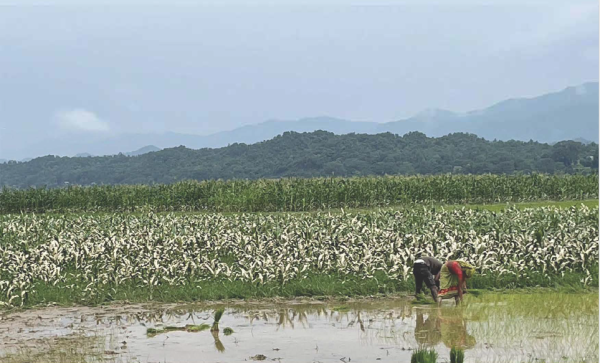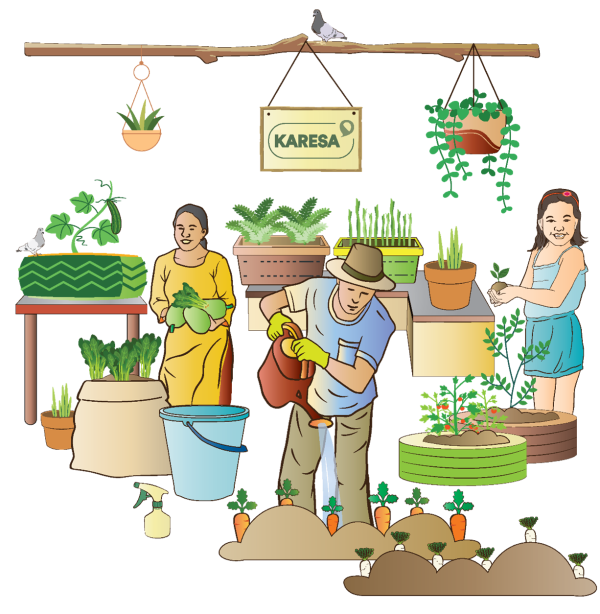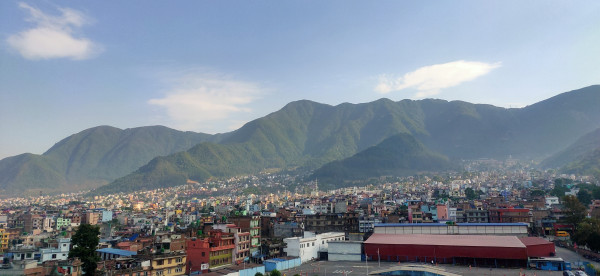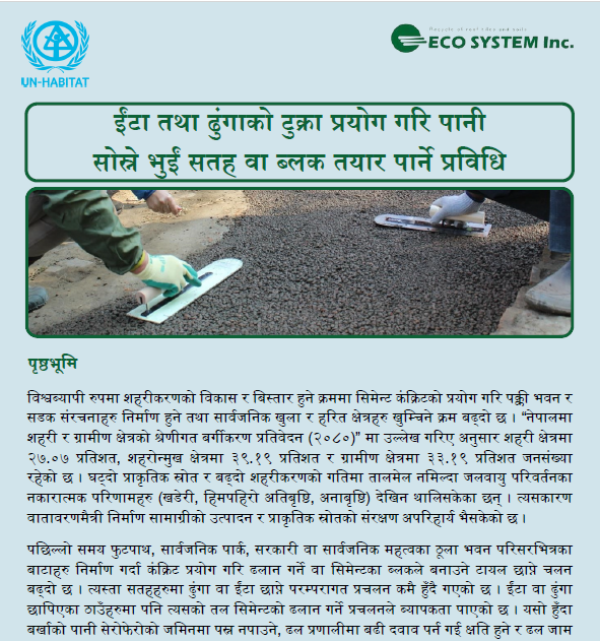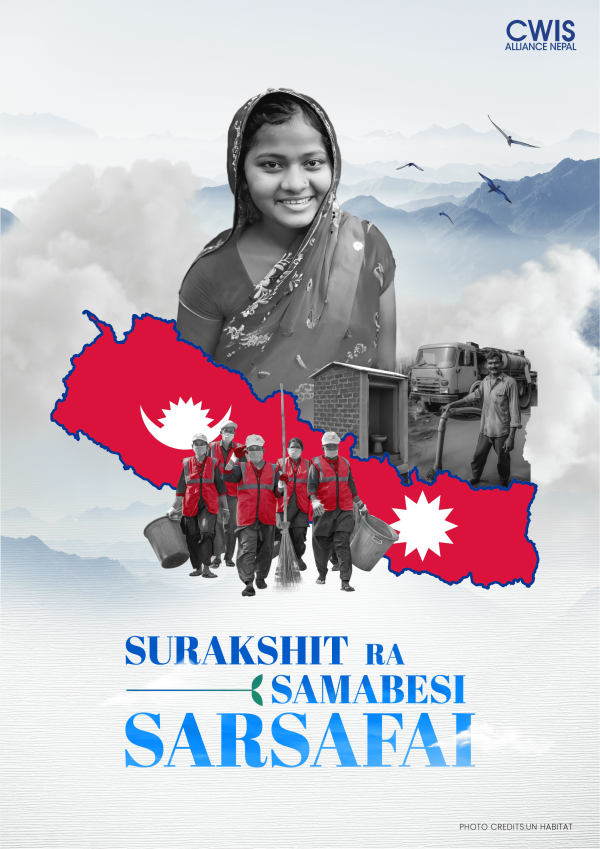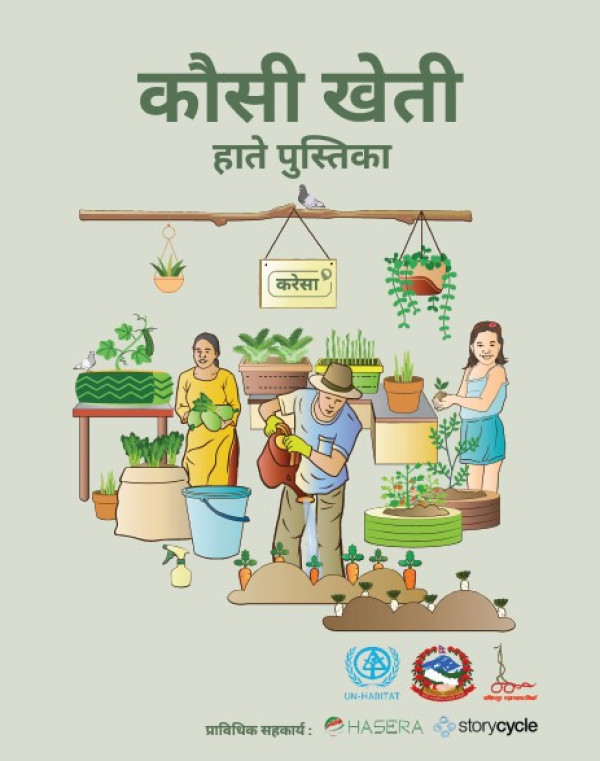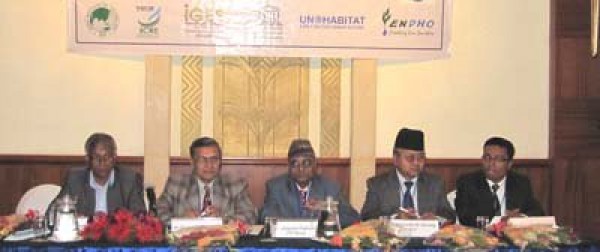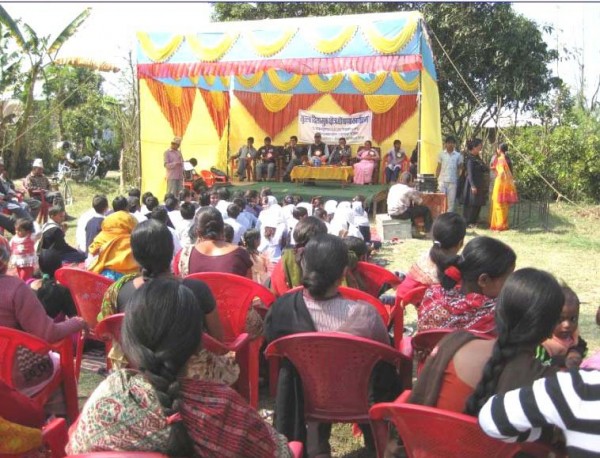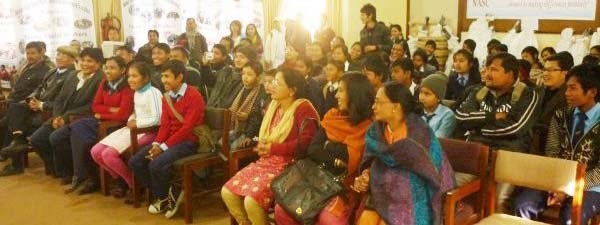Sukekhola, the first community in Kamalamai Municipality declared open defecation free in Water for Asian Cities Projects
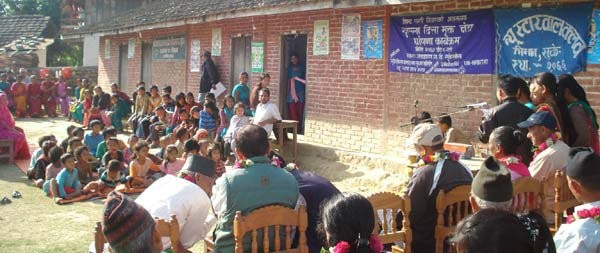
Kamalamai Integrated Water, Sanitation and Hygiene (WASH) Improvement project declared one community, in Kamalamai municipality, the second largest municipality, an open defecation free (ODF) in March 2011. Centre for Integrated Urban Development (CIUD) in close coordination with local sector stakeholders, District water supply and sanitation office, District public health office and local Water and Sanitation Users Committees with support of WaterAid in Nepal (WAN) and UN Habitat Water for Asian Cities (WAC) Programme is implementing this project in peri urban settlements of Kamalamai municipality to improve the water, sanitation and health condition of poor and vulnerable residents. These WAC partners cooperate with respective municipality for the effective implementation of the project. After this declaration, Sukekhola has become the first community in Kamalamai to declare ODF in the Municipality. There are 88 households (HHs) in the community, where 75 per cent HHs were practicing open defecation before the project intervention. The community people with support of the project constructed 66 individual toilets that helped them to bring their community to this stage. In addition, the project also adopted an integrated approach in order to improve environmental health condition of urban poor communities, which firstly focused jointly on low cost household option on water treatment, sanitation, and hygiene. Since it needs huge investment to improve the quality of water at source, this project has opted to promote the Point of use (PoU) treatment methodology to safeguard the health of the community people. Community people awareness level has been enhanced through the trained water quality volunteers who are responsible to test the quality of water in the community and disseminate the result to the wider audience. To improve sanitation, it is promoting low cost improved double pit latrine and bio gas. Most of the constructions were done using the local materials and local labours to create a sense of ownership and support the local livelihoods. To supplement the local ownership local masons were trained and hired to execute the job and has supported in income generation. Equity and inclusion has been the centre point during project intervention. Women representation in Water and sanitation users committee is overwhelming and has triggered the huge community participation in project activities. Disable and child friendly toilet has been promoted. To demonstrate the low cost toilets and to change the mindset of those people who thinks toilet construction is expensive, the project used bamboo structures, cement concrete block and jute bags for superstructures of toilet. This project has trained ward wise FCHVs and interested local women volunteers and developed them as V-WASH (Volunteers for Water, Sanitation and Hygiene) and has promoted hygiene education like practices of proper hand washing, safe storage of water, waste management, kitchen management and grey water management for further better health outcomes through Door to Door campaign and to bring about the behavioral change in the community. Likewise it has trained Child Clubs and School children to safe guard the WASH activities basically focusing on sustaining the ODF status and to aware the communities on WASH issues. The project is currently working closely with local authorities, Community Based Organization (CBOs), schools and Female Community Health Volunteers (FCHVs) to further improve sustainability and integration, and deliver project activities effectively. Community based monitoring and evaluation (CBME) tool has been introduced for maintaining the transparency in financial aspect and raising ownership within community people for the sustainability of project intervention. Likewise Rapid Convenient Survey (RCS), a hygiene monitoring tool has been introduced and practiced to access the behavioral changes brought by the hygiene related intervention. In addition, the project has envisaged widening its activities in upper part of Kamalamai municipality focusing its activities on poorly maintained sanitation problems of small town which has been overshadowed due to the huge investment in water sector and lack of community awareness on the importance of sanitation facilities.
